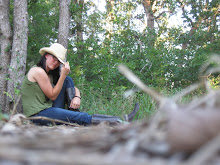So you're probably wondering just what it was that I learned. Well, apparently, I'm a people pleaser. Not in the sense that I can't say no (although that is something that I have a hard time with) and not in the sense that I can't be my own person, or am afraid to take risks (my current decisions kind of prove otherwise as far as that goes.) What it does mean is that my ideas of "once a friend, always a friend" and the fact that I go into pursuit mode when people, who were once close, try to pull away, are based on my own insecurities. The fact that I see this pursuit of someone as a mark of a loyal friend, is just further proof that I don't completely understand my actions myself.
Reading this book showed me a lot about myself that I had not previously thought about. It basically explains everything that I had not understood before. It explains why I fight so hard to hold on to people, even when they are hurting me. It explains why I clean more when I'm worried about my living situation. And it's not a recent development.
I can remember, as a child, making "surprises" for my mom when she was really stressed out to help her feel better. These "surprises" usually consisted of cleaning in some form or other, but generally the kitchen floor. When my friends were in trouble of some kind or other, my first reaction was to do what I could to fix things and make them feel better. I was the "good girl" because I knew that made the adults in my life pleased with me. In high school, when it became clear that the other kids in my class had no interest in changing their opinion of me, no matter what I did or said, I got tired of trying. I gave in to my introvert and picked up a book. But the resentment that I have since struggled with is apparently common to pleasers who get tired of trying to please. That's also when the anxiety attacks started, although I didn't realize that's what they were at the time.
When I started dating my first boyfriend, I pursued him for 6 months, regardless of the fact that he was sending clear signals that a relationship was not something that he could handle right then. I hung on for 9 more months after that, even though I should not have. Shortly after my anxiety got worse, and I think it's because I knew he was hurting, and I couldn't make it better. I had always made my own anxiety go away by making others feel better. When that wasn't an option, I didn't have any idea how to deal with it.
My grades throughout school were also more focused on making my teachers happy than on a real desire to do well. I always said that my grades were what gave me my self esteem. Good grades meant I was successful, and poor grades meant I wasn't. Looking at it now though, I think it really had more to do with the fact that good grades meant the adults were happy. And since the adults were easier to please than the kids my age, that's what I focused on. I did learn some things that made those my age happy, like the kids my freshman year telling me that crying was immature. To learn not to cry made them happy, so I did. I assumed most people felt that way, so in order to reduce my anxiety, I learned how to only be sad when I was alone. There are tons of other examples I could give you, but it's basically the same story. I become anxious when others aren't happy, so I start doing things that I think will make them happy. Kind of gives me a new perspective on pleasers. I always thought of them as those that didn't know enough about themselves to be their own person, so they had to be what everyone else wanted them to be. Turns out, it's just their (my) way of handling anxiety.
This was probably a lot more of my personal history than you were looking for, but it makes sense. I don't have a whole lot of ideas on how to make it better, simply because most of the "growth goals" in the book focus on things I don't have a whole lot of trouble with, like saying no, or doing something a little risky. But I do know a little bit more about myself now, and at least its a place to start.

No comments:
Post a Comment